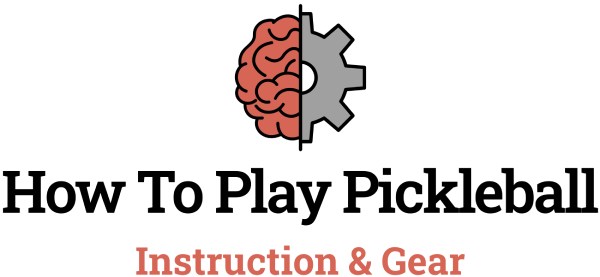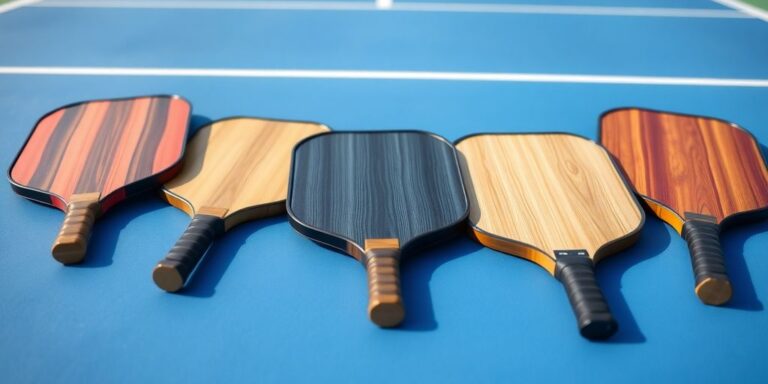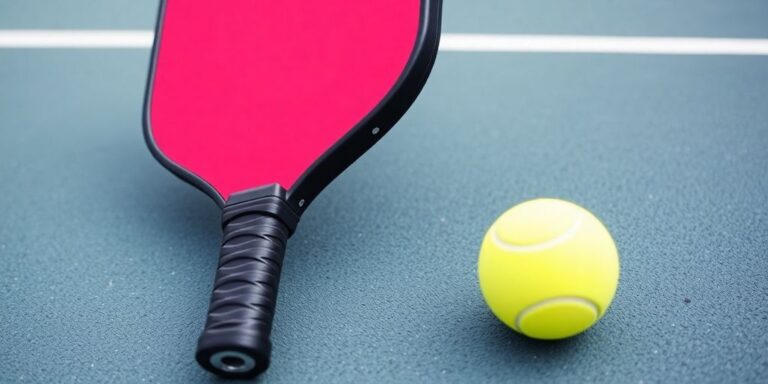If you’re into pickleball, you’ve probably heard about the DUPR rating system. It’s the go-to way to figure out where you stand skill-wise in the game. But how does it actually work? And more importantly, how can you use it to your advantage? Whether you’re new to the sport or a seasoned player, understanding your DUPR rating can help you improve and enjoy the game even more. Let’s break it all down in simple terms.
Key Takeaways
- The DUPR rating system adjusts based on your match performances, making it a dynamic reflection of your current skill level.
- Consistent practice and mastering pickleball basics are essential for improving your rating.
- Winning against higher-rated players can significantly boost your rating, while losing to lower-rated players might lower it.
- Understanding the mental side of the game, like staying focused and confident, plays a big role in your performance.
- Tracking your progress through official DUPR platforms and apps helps you stay on top of your game.
Understanding the DUPR Rating System
How DUPR Calculates Your Rating
DUPR, short for Dynamic Universal Pickleball Rating, uses a smart algorithm to gauge your skill. Here’s what it factors in:
- Match Results: Wins and losses are key. Beating higher-rated players gives your rating a noticeable boost.
- Opponent Ratings: Playing tougher opponents, even if you lose, can impact your rating positively.
- Match Scores: Close games (like 11-9) weigh more than blowouts. The system values competitiveness.
- Game Type: Singles and doubles are calculated differently.
- Data Quantity: More matches mean a more accurate and stable rating.
The Importance of Match Results in DUPR
Your match results are at the heart of the DUPR system. Every time you play, your performance gets logged and recalculated. Winning consistently against skilled players is the fastest way to climb the ranks. But don’t worry if you lose—playing competitive matches still helps refine your rating over time.
Think of your DUPR as a reflection of your current skill, not just a static number. It adjusts as you grow and improve.
Why DUPR is a Dynamic System
Unlike old-school static ratings, DUPR evolves with you. It updates after every match, showing your progress in real-time. This dynamic approach keeps things fair and ensures that your rating always reflects your true skill level. It’s not just about who you beat, but how you play and who you compete against.
Strategies to Improve Your DUPR Rating in Pickleball

Mastering the Fundamentals of Pickleball
Before diving into advanced tactics, you’ve got to get the basics nailed down. Here’s where to start:
- Serve Consistently: A well-placed serve can set the tone for the entire rally. Practice different types of serves and focus on accuracy over power.
- Dinking: This soft shot is a game-changer near the net. It’s not flashy, but it’s essential for controlling the pace of play.
- Solid Groundstrokes: Work on both forehands and backhands. Aim for depth and placement to keep your opponent guessing.
Developing Strategic Gameplay
Winning isn’t always about hitting harder—it’s about playing smarter. Here are some ideas:
- Court Positioning: Always be aware of where you are and where you should be. Anticipate your opponent’s next move.
- Adapt to Opponents: If they’re weak on one side, target it. If they’re slow to the net, exploit it.
- Communicate in Doubles: If you’re playing doubles, clear and quick communication with your partner is a must.
The Role of Consistent Practice
You’ve heard it before, but it’s true: practice makes better (if not perfect). Here’s how to make it count:
- Play Regularly: The more you play, the more comfortable you’ll get with different scenarios.
- Drill Specific Skills: Don’t just play matches. Focus on drills for serves, volleys, and footwork.
- Review and Adjust: Watch recordings of your matches or ask experienced players for feedback.
Pro Tip: Improving your DUPR rating isn’t just about winning matches; it’s about learning from every game. Even losses can teach you something valuable.
The Role of Match Performance in DUPR Ratings
How Winning Affects Your Rating
Winning matches is the most direct way to boost your DUPR rating. But not all wins are equal. Beating a higher-rated opponent can lead to a more significant increase in your rating compared to defeating someone with a lower rating. The system rewards victories that demonstrate skill and competitiveness.
Here’s a quick breakdown of how wins can influence your rating:
- Against higher-rated players: Substantial rating boost.
- Against equally-rated players: Moderate increase.
- Against lower-rated players: Minimal impact.
Impact of Losing to Lower-Rated Opponents
Losses can hurt your DUPR rating, especially if you lose to someone rated significantly below you. The system interprets this as underperforming relative to your skill level. To minimize the impact:
- Focus on playing consistently, even in matches you are expected to win.
- Avoid underestimating lower-rated opponents—they can surprise you.
- Keep the score close; a competitive loss impacts your rating less than a blowout.
Stabilizing Your Rating Over Time
Your DUPR rating becomes more stable as you play more matches. Early on, your rating may swing up and down, but over time, it will reflect your true skill level. Here’s how to keep it steady:
- Play regularly to keep your data current.
- Compete against a variety of skill levels to create a balanced profile.
- Focus on improving your game rather than obsessing over the rating.
Remember, your DUPR rating is a snapshot of your performance. It’s not just about winning but showing consistent growth and skill improvement on the court.
Key Skills to Elevate Your Pickleball Game
Perfecting Your Serve and Return
The serve and return are the first shots of every rally, and they set the tone for the entire point. A strong, consistent serve can put your opponent on the defensive right away. Focus on placement rather than power—aiming for deep serves near the baseline can limit your opponent’s ability to attack. When returning, prioritize accuracy and depth to force your opponent to move back, giving you control of the net early on.
Key tips:
- Practice serving to different spots on the court to keep opponents guessing.
- Work on a high, deep return to push your opponent out of position.
- Avoid risky serves that might result in faults—consistency is more valuable than speed.
Mastering the Art of Dinking
Dinking isn’t just a soft shot; it’s a strategic tool to control the pace of the game. By keeping the ball low and slow, you can force errors from your opponent and set up opportunities for an aggressive play. To improve your dinking game, practice hitting soft shots that land just over the net and stay within the kitchen.
Drills to try:
- Practice crosscourt dinks with a partner to improve control and placement.
- Work on transitioning from a dink to an attack shot when the opportunity arises.
- Focus on footwork to stay balanced and ready for quick changes in pace.
Improving Net Play and Volleys
Net play is where many points are won or lost. Strong volleys and quick reflexes can turn a defensive rally into an offensive opportunity. Keep your paddle up and stay light on your feet to react quickly to fast shots. When volleying, aim to keep the ball low and directed toward your opponent’s feet to limit their options.
Quick tips for better net play:
- Always maintain a ready position with your paddle up and centered.
- Use soft hands to absorb the ball’s pace and control your volleys.
- Communicate with your partner to avoid confusion during fast exchanges.
Building these skills takes time and patience, but the payoff is worth it. Mastering these techniques will not only improve your game but also make every match more enjoyable.
Common Misconceptions About DUPR Ratings
Debunking Myths About Rating Drops
One common myth is that losing a single match will drastically lower your DUPR rating. This isn’t true. The system takes into account more than just wins and losses—it evaluates the level of your opponents and the overall competitiveness of the match. For example, losing a close match to a higher-rated player may not hurt your rating much, and could even help stabilize it over time. On the flip side, a lopsided loss to a significantly lower-rated player might have a more noticeable impact.
Understanding the Rating Scale
The DUPR rating scale isn’t just about numbers; it’s a reflection of skill progression. A lot of players think a "good" rating is universal, but it’s all relative. Beginners might aim for a 2.5, while seasoned players might strive for a 4.0 or higher. The key is to focus on your personal growth rather than comparing yourself to others. The rating scale is designed to match you with players of similar ability, making games fair and enjoyable.
| Rating Range | Player Level |
|---|---|
| 1.0 – 2.5 | Beginner |
| 2.6 – 3.5 | Intermediate |
| 3.6 – 4.5 | Advanced |
| 4.6 – 5.0+ | Professional/Elite |
Clarifying the Role of Opponent Skill Levels
Another misconception is that playing against lower-rated opponents is "safe" for your rating. Actually, this can be risky. If you lose to someone with a much lower rating, the system sees this as underperformance and adjusts accordingly. On the other hand, playing against higher-rated opponents—even if you lose—can still positively influence your rating, especially if the match is competitive. This dynamic encourages players to seek challenging matches rather than only sticking to "safe" ones.
The DUPR system isn’t just about winning; it’s about how you perform relative to expectations. Understanding this can help you make smarter choices about who to play against and how to approach each match.
Tools and Resources to Track Your DUPR Rating

Using Official DUPR Platforms
The DUPR system offers its own platform where players can track their ratings. This official tool is the most reliable way to monitor your progress. It updates your rating after every recorded match, providing a clear picture of how your performance stacks up. You’ll also find detailed stats like match history and opponent ratings, which can help identify areas for improvement.
Leveraging Pickleball Apps
There are several third-party apps designed for pickleball enthusiasts, and many of these integrate seamlessly with DUPR. These apps often go beyond just tracking your rating. Some include features like:
- Match scheduling tools.
- Performance analytics.
- Tips for improving gameplay.
Explore a few and pick one that fits your needs. Just make sure it syncs with the official DUPR system to keep your data accurate.
Tracking Progress Through Match History
Keeping a personal log of your matches is another great way to track progress. This doesn’t have to be fancy—a simple spreadsheet can do the trick. Record details like:
- Opponent ratings.
- Match scores.
- Key takeaways or lessons from the game.
Over time, you’ll notice trends in your performance, like whether you’re improving against higher-rated players or struggling in specific areas. Pair this with the DUPR system for a holistic view of your game.
Staying consistent with tracking tools not only keeps you informed but also motivates you to keep improving.
The Mental Game: How Psychology Impacts Your DUPR Rating
Building Confidence on the Court
Confidence can make or break your performance in pickleball. When you believe in your abilities, you’re more likely to execute shots with precision and take calculated risks. Start small—focus on the skills you’re already good at and use them as a foundation. Confidence grows with consistent effort and small wins.
- Warm up thoroughly before matches to feel physically ready.
- Set realistic goals for each game, like improving your serve or staying consistent in rallies.
- Celebrate small victories, even in losses, to keep your mindset positive.
Confidence isn’t about never failing; it’s about trusting that you can recover and improve.
Overcoming Performance Anxiety
Feeling nervous before or during a match is normal, but it can hurt your game if left unchecked. Performance anxiety often stems from overthinking or fearing mistakes. Instead, try to shift your focus to the present moment.
- Practice deep breathing techniques to calm your nerves.
- Visualize successful plays before stepping onto the court.
- Avoid fixating on the score; concentrate on the next point instead.
Performance anxiety can be managed with practice, making it easier to stay composed during high-pressure moments.
Staying Focused During Matches
Staying mentally sharp throughout a match is no easy task, especially when distractions arise. Whether it’s an opponent’s mind games or your own frustration, maintaining focus is key to performing well.
- Break the game into smaller segments, like focusing on one point at a time.
- Develop a pre-serve routine to reset your mind and block out distractions.
- If you lose focus, take a moment to regroup—adjust your paddle, take a deep breath, or wipe your hands.
By staying present and adaptable, you’ll be better equipped to handle the ups and downs of any match.
Mastering the mental game in pickleball isn’t just about skill; it’s about staying calm, confident, and focused when it matters most.
Understanding the mental side of pickleball can really change how you play. Your mindset can affect your DUPR rating, which is a measure of your skill level. If you want to improve your game, think about how your thoughts and feelings influence your performance. Ready to take your skills to the next level? Visit our website for more tips and tricks!
Wrapping It Up
So, there you have it—everything you need to know about the DUPR rating and how it works in pickleball. Whether you’re just starting out or already a seasoned player, understanding this system can really help you track your progress and set goals. At the end of the day, it’s all about enjoying the game and pushing yourself to improve. Keep practicing, stay consistent, and most importantly, have fun out there. Your DUPR rating will follow!
Frequently Asked Questions
What is the DUPR rating system?
The DUPR rating system, or Dynamic Universal Pickleball Rating, is a way to measure your skill level in pickleball. It adjusts based on your match results, making it a dynamic and accurate reflection of your abilities.
How can I improve my DUPR rating?
Improving your DUPR rating involves practicing regularly, focusing on fundamental skills, playing strategically, and competing in matches against players of varying skill levels.
Does losing a match lower my DUPR rating?
Yes, losing matches, especially to players with lower ratings, can decrease your DUPR score. However, consistent effort and improvement can help stabilize and raise your rating over time.
How many matches do I need to establish a DUPR rating?
You typically need to play several matches before your DUPR rating becomes stable. The system uses your performance data to calculate an accurate score.
Where can I check my DUPR rating?
You can view your DUPR rating on the official DUPR website or through various pickleball apps that track match results and ratings.
Why is DUPR considered a dynamic system?
DUPR is called a dynamic system because it updates your rating after every match, reflecting your most recent performance and skill level.




